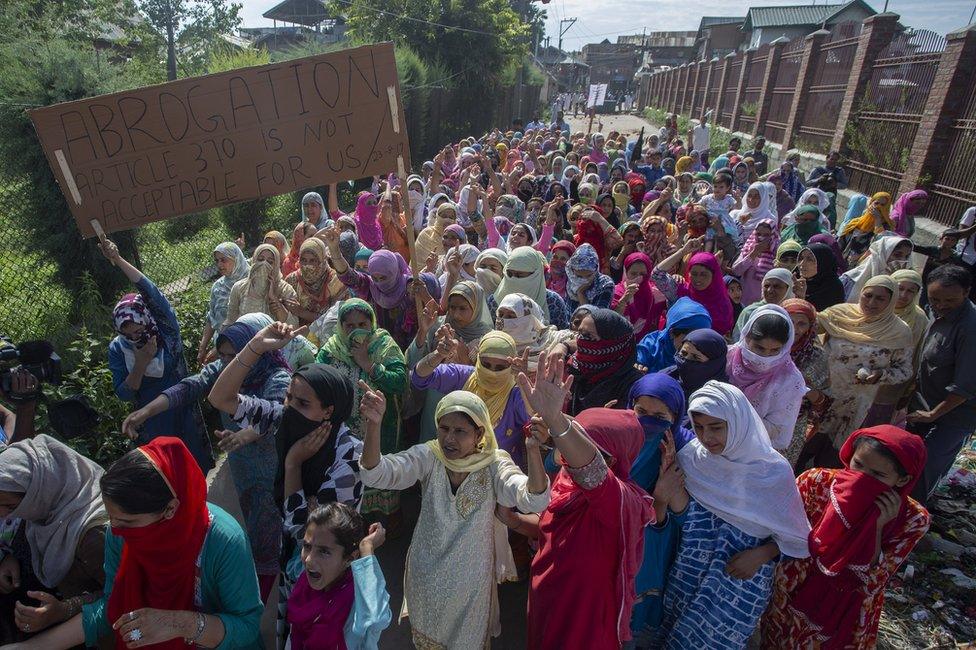Kashmir: India's top court to hear challenge on special status loss
- Published

India's Supreme Court has agreed to hear petitions against the federal government's decision to revoke special status for Indian-administered Kashmir.
The region has been under lockdown since 5 August when it was stripped of its partial autonomy.
The court said a five-judge constitution bench would hear all 14 petitions in the first week of October.
It also asked the government to respond to those challenging the communications blackout and media restrictions.
There has been little news from the region as mobile networks and the internet have been shut down, although a partial restoration of connectivity recently has enabled some landlines to start working again.
The court observed that if a person wanted to travel to the region then they should not be prevented from doing so and allowed one of the petitioners to travel to Anantnag to meet his parents.
The Bharatiya Janata Party-led government has justified its stance, saying the restrictions were needed to maintain law and order and prevent violence from breaking out on a mass scale.
The decision has, however, sparked protests in the Muslim-majority Kashmir Valley, some of which have turned violent. But the government has maintained that the region has been largely calm.
The “óĻó“«Ć½ meets some protesters who were injured allegedly at the hands of Kashmir's security forces.
Article 370, as the constitutional provision guaranteeing special status was known, allowed the region a certain amount of autonomy, including special privileges in property ownership, education and jobs. This provision had underpinned India's often fraught relationship with Kashmir.
There has been violence in the Indian-administered side - the state of Jammu and Kashmir - for 30 years due to a separatist insurgency against Indian rule, with tens of thousands of people killed.
Ahead of the government's announcement on 5 August, Kashmir saw a heavy deployment of armed forces, and officials say protests have been largely curtailed. Thousands of people, including local politicians, activists and business leaders, remain in "preventive detention" with many transferred to jails outside the state.
However, there have been reports of violent demonstrations with protesters alleging that they were injured by security forces. It is not clear how many people have been hurt.
Read more on Kashmir
- Published20 August 2019
- Published6 August 2019